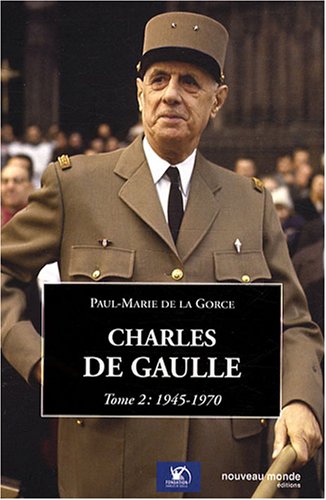

Therefore, de Gaulle is seen to have saved France, once again. During this time, the economy improved massively and France became the fourth biggest nuclear power in the world behind the US, the Soviet Union and the UK. With his immense popularity, de Gaulle was elected president and remained so for 10 years. He then resigned but was compelled to return to politics in 1958 when the new French republic seemed to be falling apart. He is considered the “savior of France” several times overĪfter serving his country during World War II and being considered a savior of the nation, de Gaulle was the provisional leader from 1944 to 1946.

He also pulled French forces out of NATO in 1966, again because of his disagreement with the US. He opposed the United Kingdom’s joining of the European Economic Community because he was concerned about their strong ties to the US.

Many of de Gaulle’s political actions seem quite anti-American in retrospect, but can be attributed to his deep-rooted nationalism, an important fact about Charles de Gaulle. This is why he always supported the country’s nuclear weapons program amongst other initiatives. He secured a place for France in the United Nations Security Council and always strived to keep his country’s individuality in the Cold War, between the United States and the Soviet Union. This can be attributed in large part to de Gaulle’s foundations. To this day, French cultural and ideological exceptionalism makes France stand apart in many international debates. Because of his perceived arrogance, he appears to have been left out of negotiations during the Yalta Conference at the end of World War II. Roosevelt, the President of the United States during his time, could not stand him. He didn’t get on with all his peersĭe Gaulle was perceived by many world leaders as arrogant and irritating, an interesting fact about Charles de Gaulle. It was also during this time that de Gaulle looked to enlist soldiers from the French colonies to fight the occupation.
#Charles de gaulle books free
He fled to London and was helped by Prime Minister Winston Churchill, becoming the leader of the Free French movement.ĭe Gaulle broadcast a famous message to the French from across the Channel by radio, telling his people to resist the occupation. His fight against German occupation started in Londonĭuring World War II, as the Vichy regime took over France, collaborating with the German occupation, de Gaulle did not accept the surrender. He was very tall, measuring 6 feet 5 inches (1.95m), a fun fact about Charles de Gaulle. It’s not just his legend that makes Charles de Gaulle look like a titan of French history. Entitled “The Enemy’s House Divided” (“Discorde chez l’ennemi”), it analysed the German forces and what he believed to be their issues and divisions. His first was written in captivity during his time as prisoner of war in World War I. During World War I, de Gaulle wrote his first bookĬharles de Gaulle would go on to write several books which were used for military tactics and political strategy by his followers. This is because he had studied German at school and spoke it fluently, after also spending his summer holidays in Germany. He spoke Germanĭuring his time as prisoner of war, de Gaulle read German newspapers and he even lectured his fellow prisoners on his views of how the war was going. He tried to escape five times and was unsuccessful, so he remained a prisoner until the end of the war, an interesting fact about Charles de Gaulle. He fought in the war and was wounded and captured by the German army. Charles de Gaulle was a German prisoner of warĭuring World War I, Charles de Gaulle had been in the army for a mere 2 years. Read on to find out 12 interesting facts about Charles de Gaulle!Ĭharles de Gaulle Facts 1. With such a legendary imprint into French and European history, de Gaulle is a very interesting character. Moreover, he influenced the entire political evolution of France for decades after he stepped down from politics and his legacy is visible everywhere. He was without a doubt the emblem of France throughout the 1940s through to 1969 when he resigned. Born in 1890 and growing up to a French army career, Charles de Gaulle became the symbol of free France when he led the Resistance against the Nazi occupation during World War II and then continued an illustrious political career as president of France.


 0 kommentar(er)
0 kommentar(er)
